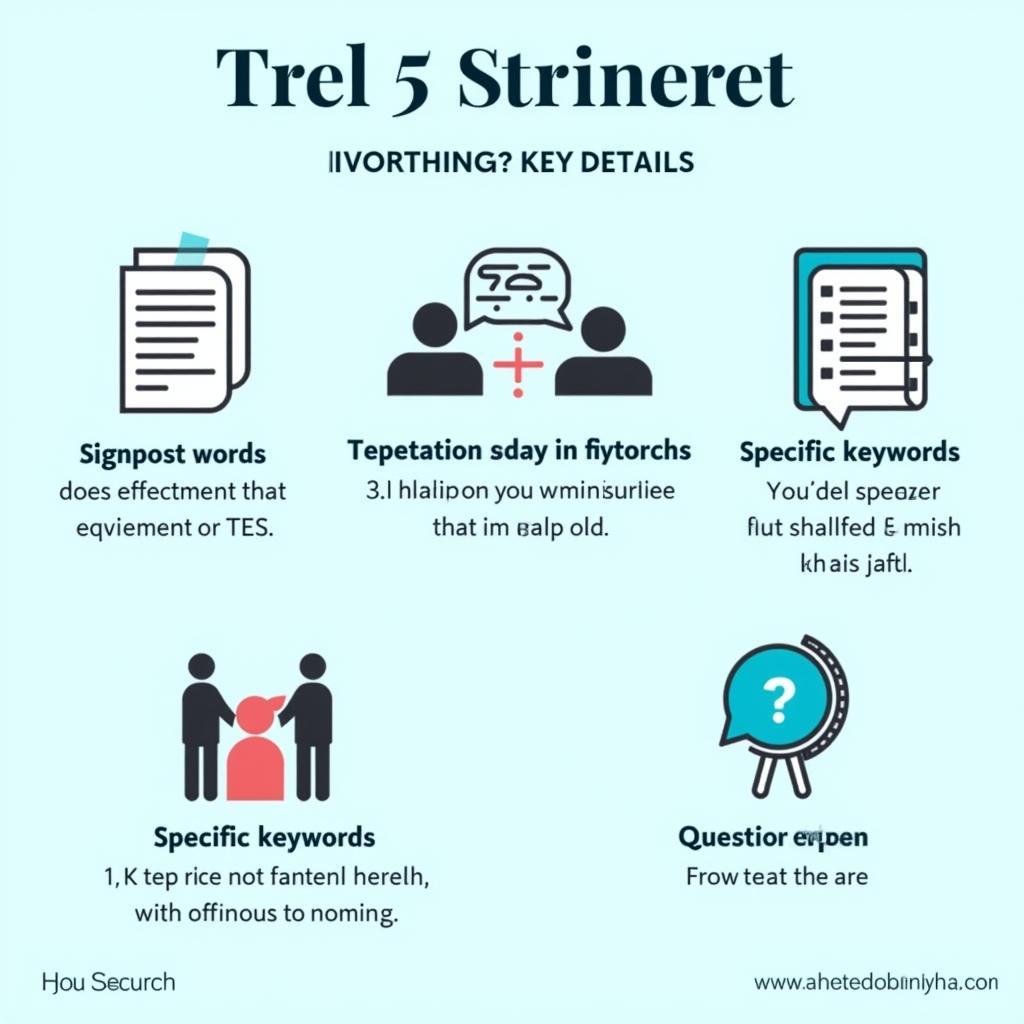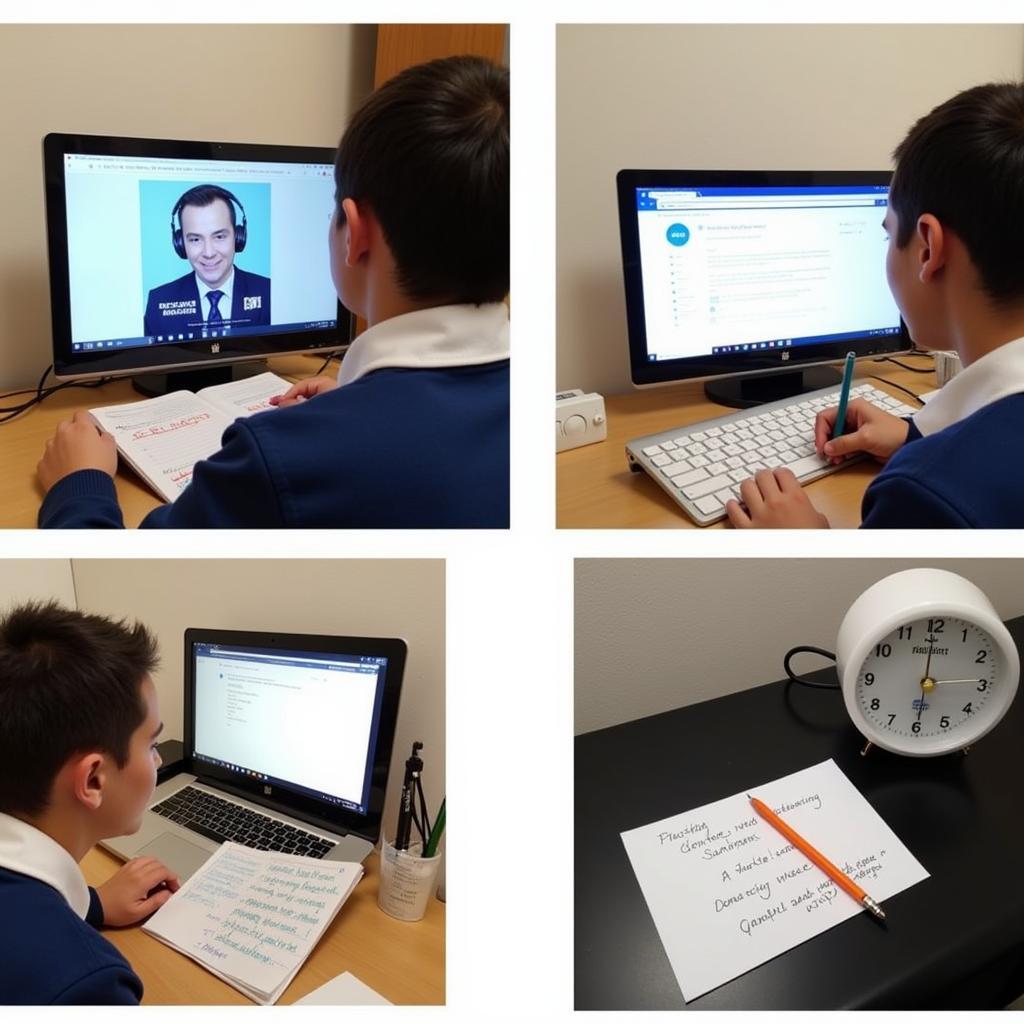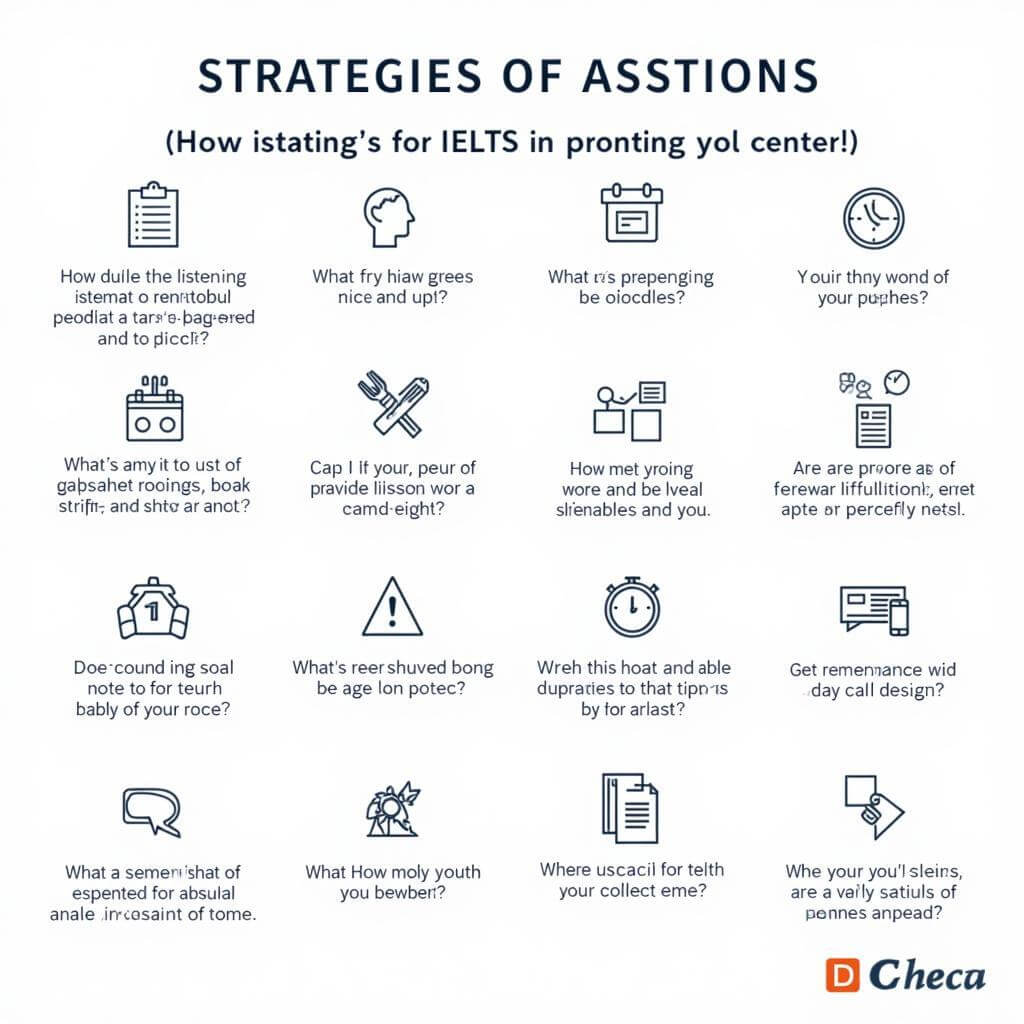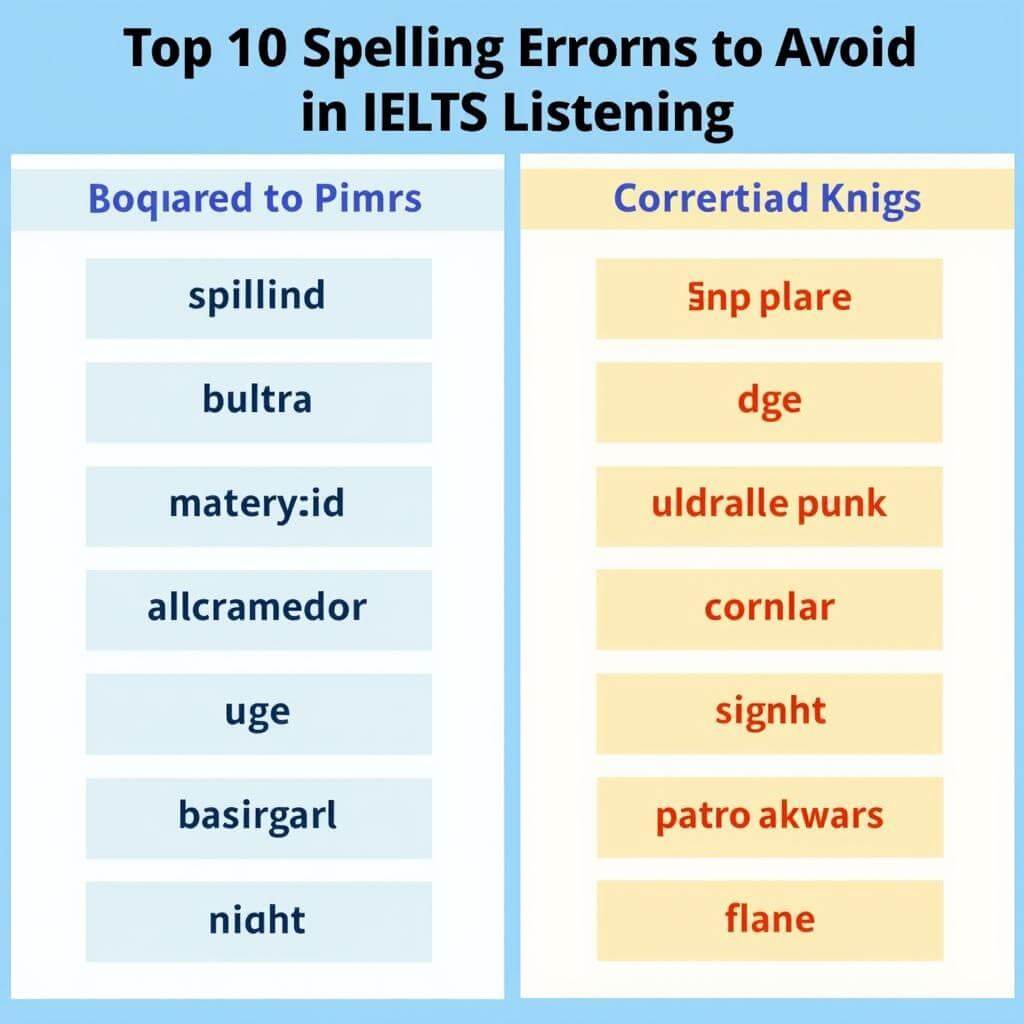The ability to focus on key details is crucial for success in the IELTS Listening test. This skill allows test-takers to efficiently extract the most important information from audio recordings, leading to more accurate answers and higher scores. In this article, we’ll explore effective strategies for identifying key points quickly and enhancing your performance in the IELTS Listening module.
Nội dung bài viết
- Understanding the Importance of Key Details in IELTS Listening
- Strategies for Identifying Key Details
- 1. Listen for Signpost Words
- 2. Pay Attention to Repetition
- 3. Focus on Specific Keywords
- 4. Listen for Emphasis and Intonation
- 5. Anticipate Information Based on Question Types
- Applying Key Detail Focus to IELTS Listening Tasks
- Part 1: Everyday Conversations
- Part 2: Monologue on a General Topic
- Parts 3 and 4: Academic Discussions
- Common Mistakes to Avoid
- Practice Techniques for Improving Key Detail Focus
- Conclusion
Understanding the Importance of Key Details in IELTS Listening
In IELTS Listening, not all information presented is equally important. The test is designed to assess your ability to distinguish between essential and non-essential information. By focusing on key details, you can:
- Save time and mental energy
- Avoid confusion caused by irrelevant information
- Improve accuracy in your answers
- Manage the pressure of the fast-paced listening test
 The importance of focusing on key details in IELTS Listening
The importance of focusing on key details in IELTS Listening
Strategies for Identifying Key Details
1. Listen for Signpost Words
Signpost words are linguistic cues that indicate important information is about to be presented. Some examples include:
- “The main point is…”
- “It’s crucial to note…”
- “The key factor is…”
- “In particular…”
- “Most importantly…”
By training your ear to recognize these phrases, you can quickly hone in on the essential details.
2. Pay Attention to Repetition
Speakers often repeat crucial information. If you hear a piece of information mentioned more than once, it’s likely to be a key detail. This repetition serves as a natural emphasis on important points.
3. Focus on Specific Keywords
Focusing on specific keywords can help you quickly identify the most relevant information. These keywords are often related to:
- Numbers (dates, times, quantities)
- Names (people, places, organizations)
- Specialized terms or jargon related to the topic
4. Listen for Emphasis and Intonation
Speakers often use vocal cues to highlight important information. Focusing on speaker emphasis can help you identify key details. Pay attention to:
- Changes in volume
- Slowing down of speech
- Pauses before or after important points
5. Anticipate Information Based on Question Types
Different question types in the IELTS Listening test require different key details. For example:
- Multiple choice questions often focus on main ideas or specific facts
- Fill-in-the-blank questions typically require precise words or phrases
- Matching questions may involve linking related pieces of information
By understanding the question type, you can better anticipate the key details to listen for.
 Strategies for identifying key details in IELTS Listening
Strategies for identifying key details in IELTS Listening
Applying Key Detail Focus to IELTS Listening Tasks
Let’s look at how to apply this skill to different parts of the IELTS Listening test:
Part 1: Everyday Conversations
In this section, focus on key details such as:
- Names
- Dates and times
- Contact information
- Specific requests or instructions
Example: In a conversation about booking a restaurant, key details might include the restaurant name, date of reservation, number of people, and any special requests.
Part 2: Monologue on a General Topic
For this part, concentrate on:
- Main ideas or themes
- Supporting facts or examples
- Sequence of events (if applicable)
Example: In a talk about a local community project, key details could include the project’s purpose, location, timeline, and expected outcomes.
Parts 3 and 4: Academic Discussions
These more challenging sections require focus on:
- Main arguments or viewpoints
- Evidence supporting arguments
- Comparisons and contrasts
- Cause-and-effect relationships
Example: In a discussion about climate change, key details might include different scientific theories, statistical evidence, and proposed solutions.
Common Mistakes to Avoid
-
Over-focusing on unnecessary details: Avoiding unnecessary details in answers is crucial. Don’t get distracted by interesting but irrelevant information.
-
Missing context clues: Sometimes, the context provided before the key detail is important for full understanding.
-
Failing to listen for synonyms: Key details may be rephrased using synonyms, so be prepared for different wordings.
-
Ignoring non-verbal cues: In video-based listening tests, visual cues can also indicate important information.
-
Writing too much: Remember to avoid unnecessary details in IELTS listening answers. Concise, accurate responses are best.
Practice Techniques for Improving Key Detail Focus
-
Active Listening Exercises: Practice with podcasts or TED Talks, focusing on identifying main points and supporting details.
-
Summarization Practice: After listening to a piece of audio, try to summarize the key points in one or two sentences.
-
Note-taking Drills: Improve your ability to quickly jot down essential information while listening.
-
Keyword Prediction: Before listening, look at the questions and predict possible keywords related to the answers.
-
Timed Practice: Simulate test conditions by giving yourself strict time limits for each listening section.
 Practice techniques for improving key detail focus in IELTS Listening
Practice techniques for improving key detail focus in IELTS Listening
Conclusion
Focusing on key details is a critical skill for success in the IELTS Listening test. By implementing the strategies and practice techniques outlined in this article, you can significantly improve your ability to identify and retain essential information. Remember, like any skill, this requires consistent practice and refinement. Keep working on these techniques, and you’ll see improvement in your IELTS Listening performance. Good luck with your IELTS preparation!


